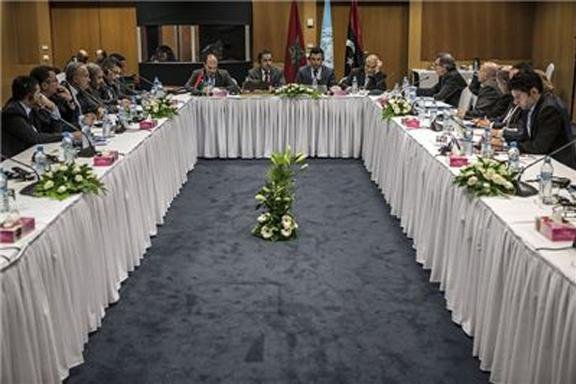Arrival of U.N.-backed administration in Tripoli met with optimism for stability in oil-rich Libya and equal concerns about corruption. Photo courtesy of the U.N. Support Mission in Libya
TRIPOLI, Libya, March 31 (UPI) -- Though the fundamentals of the oil-based economy remain weak, the United Nations and Western leaders expressed support for prosperity in Libya.
Members of a U.N.-backed national administration arrived in Tripoli amid a tense security situation in war-torn Libya. Formed under a peace agreement brokered by the United Nations last year, special U.N. envoy Martin Kobler said the Tripoli move was an important step toward national peace and prosperity.
"The international community stands firmly behind them and is ready to provide the required support and assistance," he said in a statement.
Libya's political environment fractured in the wake of civil war in 2011, with factions establishing authority from opposite sides of the country.
A report from Transparency International finds that, with nearly all of its economy funded by oil, an "accountability vacuum" exists in Libya between the government and the population.
"Despite the relatively high levels of human development, a vast number of Libyans do not benefit from the oil-driven economy," the report read. "It is estimated that 30 to 40 percent live below the poverty line."
Italian energy company Eni hosted Libyan delegates in Rome to discuss production opportunities less than a week after the signing of Libyan political unity agreements in December.
Before civil war erupted, Libya, a member of the Organization of Petroleum Exporting Countries, was producing more than 1 million bpd. Libya last communicated directly with OPEC in 2014 to report crude oil production of around 480,000 bpd.
Transparency International said that, while oil is important to the Libyan economy, it's also a source of potential corruption.
"Considering the fact that almost the entire public budget is financed by oil revenues, immense sums of money are clearly being administered without transparency," the organization said.
While backing the arrival of the U.N.-backed government, U.S. Secretary of State John Kerry called on Libyan leaders to prevent spoilers from undermining future developments.
"Now is not the time for obstructionists to hold back progress," he said in a statement.















